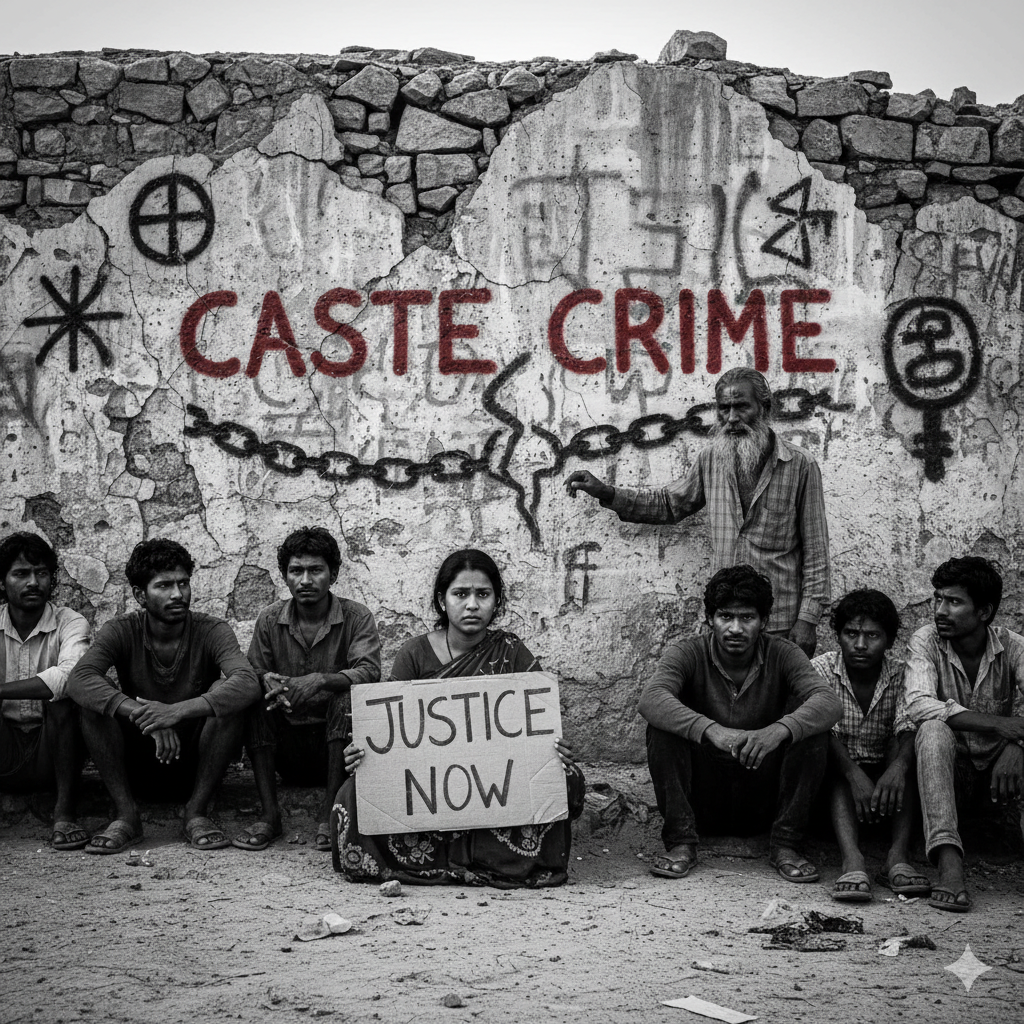
Why in News: The Supreme Court in Kiran vs Rajkumar Jivaraj Jain (Sept 2025) cancelled anticipatory bail granted by the Bombay High Court in a caste-based assault case.
- The ruling reaffirmed that Section 18 of the SC/ST (Prevention of Atrocities) Act, 1989 bars anticipatory bail where a prima facie case exists, strengthening protections for Dalit victims.
Court’s Reasoning
- Statutory Bar: Section 18 excludes anticipatory bail under CrPC 438 (BNSS 482).
- Legislative Intent: Prevent intimidation of victims and ensure effective prosecution.
- Precedents: Ram Krishna Balothia (1995), Vilas Pandurang Pawar (2012), Prathvi Raj Chauhan (2020) upheld validity of the bar.
- No Mini-Trial: Courts must check only for prima facie case, not conduct evidence analysis.
- Public View Clause: Caste abuse outside home counts as “public view” (Sec. 3(1)(r)).
- Electoral Retaliation: Violence linked to voting choice attracted Sec. 3(1)(o).
Significance
1. Reinforces protective spirit of SC/ST Act as a substantive shield.
2. Prevents dilution of legislative intent at pre-trial stage.
3. Strengthens confidence of Dalit victims in justice delivery.
4. Affirms constitutional validity of strict provisions under Articles 14 & 21.
5. Safeguards democratic participation of SC/ST communities.
Challenges
1. Risk of misuse – false or exaggerated complaints can arise in political rivalries.
2. Delay in trials – prolonged cases weaken victim protection and accused’s rights.
3. Judicial inconsistencies – divergent interpretations by lower courts.
4. Implementation gaps – police apathy and caste bias hinder effective use of the Act.
5. Balancing rights – ensuring justice for victims while protecting accused from harassment.
Way Forward
1. Strict prima facie test at bail stage without evidentiary overreach.
2. Speedy trial mechanisms for atrocity cases to balance fairness.
3. Judicial training to prevent dilution of SC/ST Act protections.
4. Police sensitisation and accountability in handling caste crimes.
5. Periodic review of misuse claims with safeguards against frivolous cases.
Conclusion
The judgment strengthens the constitutional mandate of social justice by upholding the SC/ST Act’s intent. Protecting Dalit dignity requires not only strict bar on anticipatory bail but also systemic reforms in investigation, trial, and sensitisation to ensure justice is both real and timely.
UPSC Relevance
GS Paper 2 (Polity & Governance):
Protection of vulnerable groups through legislation (SC/ST Act).
GS Paper 2 (Social Justice):
Safeguards for Scheduled Castes and Scheduled Tribes.
Mains Practice Question
Q. “The bar on anticipatory bail under the SC/ST (Prevention of Atrocities) Act is not a procedural rigidity but a substantive safeguard of dignity.” In light of the Supreme Court’s 2025 ruling in Kiran vs Rajkumar Jivaraj Jain, discuss the constitutional validity, challenges, and
